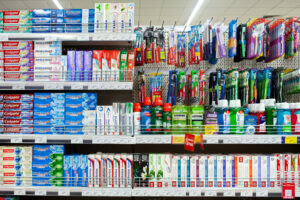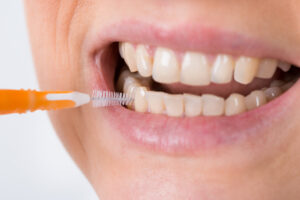Which Dental Care Products Should I Be Using for Optimal Home Care?
 We know that feeling of standing in the oral care aisle of your pharmacy or grocery store and having no idea which toothpaste to choose. There are so many different brands and formulations available nowadays that it can seem overwhelming to choose just one.
We know that feeling of standing in the oral care aisle of your pharmacy or grocery store and having no idea which toothpaste to choose. There are so many different brands and formulations available nowadays that it can seem overwhelming to choose just one.
With so many products to choose from, a little help from your dental professionals at Designer Smiles can go a long way.
What is the Most Important Thing to Know about Dental Care Products?
The good news is that the exact product you choose is not that important. Of much greater importance is the way in which you use the product. A great product only goes so far, and it does not go far at all with poor technique. You can maintain great oral health with the least expensive, generic type products if you use the right brushing and flossing techniques.
In this blog, we’ll try to help you understand what aspects of a product are most important so that you can make an educated decision on your own.
Which Toothbrush is Best?
When it comes to toothbrushes, the firmness of bristles is the most important factor. The purpose of brushing is to remove dental plaque from the teeth. It is soft and easy to remove, so you do NOT need medium or hard bristles. You should always select a toothbrush with soft bristles.
Electric vs. Manual
Many people ask us whether an electric toothbrush is truly better than a manual toothbrush. The answer is a little complicated because, again, it depends on technique. Someone using a manual toothbrush with a good technique can actually remove more plaque than someone hurriedly rushing through the process with an electric toothbrush.
In general, an electric toothbrush will remove more dental plaque than a manual one, and most people find that their teeth feel cleaner when using an electric toothbrush.
Charcoal Bristles
A relatively new trend in toothbrush manufacturing is the use of charcoal embedded bristles. The theory is that these bristles will absorb plaque and stain from the teeth, since charcoal is such a powerful absorbent. There are some studies showing that the charcoal bristles actually do harbor less bacteria on them (outside of the mouth), so they could provide some advantages. At this time, that does not include better stain removal.
Which Toothpaste is Best?
When it comes to toothpaste, you might have to read the ingredients to know what you are getting. It is also important to understand your specific risk for cavities. Toothpaste is a wonderful way to add minerals and strengthen the teeth.
Fluoride-Free Toothpaste
Some people prefer to choose a toothpaste that does not contain fluoride. If you have a high risk for cavities, this is NOT a good idea. Fluoride is the simplest way to harden and strengthen enamel against the attacks of acid and bacteria.
If you do have a high risk for cavities and still prefer not to use fluoride, you need to find a toothpaste containing other remineralizing agents. These are available but may be more difficult to find and more expensive. The ingredients to look for are nanohydroxyapatite, amorphous calcium phosphate, and arginine. These chemicals can provide a similar benefit to fluoride.
Whitening Toothpaste
Whitening toothpaste does not change the color of the teeth. It reveals the underlying tooth structure by polishing away superficial stains that collect on the external surfaces from the things we eat and drink. Using whitening toothpaste is a great way to prevent staining and maintain a white smile.
Whitening toothpastes use tiny abrasive particles to perform this polishing. The abrasiveness of whitening toothpaste makes it a poor choice for anyone with receding gums and sensitive teeth.
Which Floss is Best?
Flossing is the only way to remove dental plaque from the surfaces between two teeth. It is essential that you use an effective flossing technique, and the technique is far more important than the brand or style of floss you choose.
For those with tight contacts between the teeth, making flossing difficult, a smooth floss like Glide will help you perform flossing more easily. If you have small spaces or areas that collect food between the teeth, you should choose a thicker, fibrous floss that will scrub away dental plaque and food debris. We love Cocofloss or super floss.
Which Mouthwash is Best?
 Mouthwash is a great way to both loosen food debris and apply important minerals to the teeth. It is important to know which of these you are going for so that you know if you should be rinsing before brushing and flossing or afterward.
Mouthwash is a great way to both loosen food debris and apply important minerals to the teeth. It is important to know which of these you are going for so that you know if you should be rinsing before brushing and flossing or afterward.
Rinsing with an antiseptic mouthwash is a great way to loosen up dental plaque and reduce the bacterial count in the mouth. For this purpose, you should rinse before brushing and flossing.
You can also use mouthwash to “soak” the teeth in remineralizing agents to strengthen enamel and fight cavities. For this purpose, you should rinse after brushing and flossing so that the ingredients in the mouthwash remain in your mouth.
What Other Dental Care Products Should I Consider Using?
For some people with complicated dental issues or challenges with oral hygiene, accessory dental care products may be beneficial. These products can help you remove dental plaque more effectively, fight bad breath, and lower your risk for dental diseases. They do not, however, take the place of brushing and flossing. There is no substitute for brushing and flossing!
Tongue Cleaner
Notice that we did not use the term “tongue scraper”. That’s because we do not want you scraping the delicate soft tissues of the tongue. A tongue cleaner should be flexible and gentle so that it removes dental plaque without damaging the surface of the tongue.
The goal of a tongue cleaner is to remove dental plaque that often collects on the back of the tongue and leads to bad breath. Dental plaque is very soft and does not require any strong forces to remove. You need only very light contact with a flexible material to remove the plaque.
 Interproximal Brushes
Interproximal Brushes
If you have small gaps between your teeth or large spaces between the teeth and gums, you may find it difficult to remove food debris and plaque. Interproximal brushes are small bristled pipe-cleaner type brushes designed to fit between the teeth. They will gently brush the sides of the teeth below the point where they touch their neighbors, removing plaque and food debris. Our favorite type is GUM Soft Picks.
Prescription Products
If you have a particularly high risk for dental disease, your dentist may prescribe dental care products that are available by prescription only. We commonly prescribe toothpastes, mouthrinses, or gels to help you fight cavities, gum disease, and mouth sores.
Want a Personalized Recommendation of Dental Care Products?
Call Designer Smiles today to schedule an evaluation with Dr. Ann. She will assess your unique dental health risk factors and help you determine which products will fight disease and maintain great oral health.
